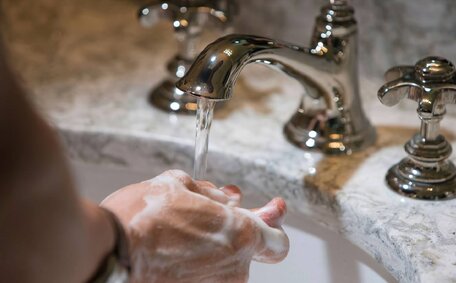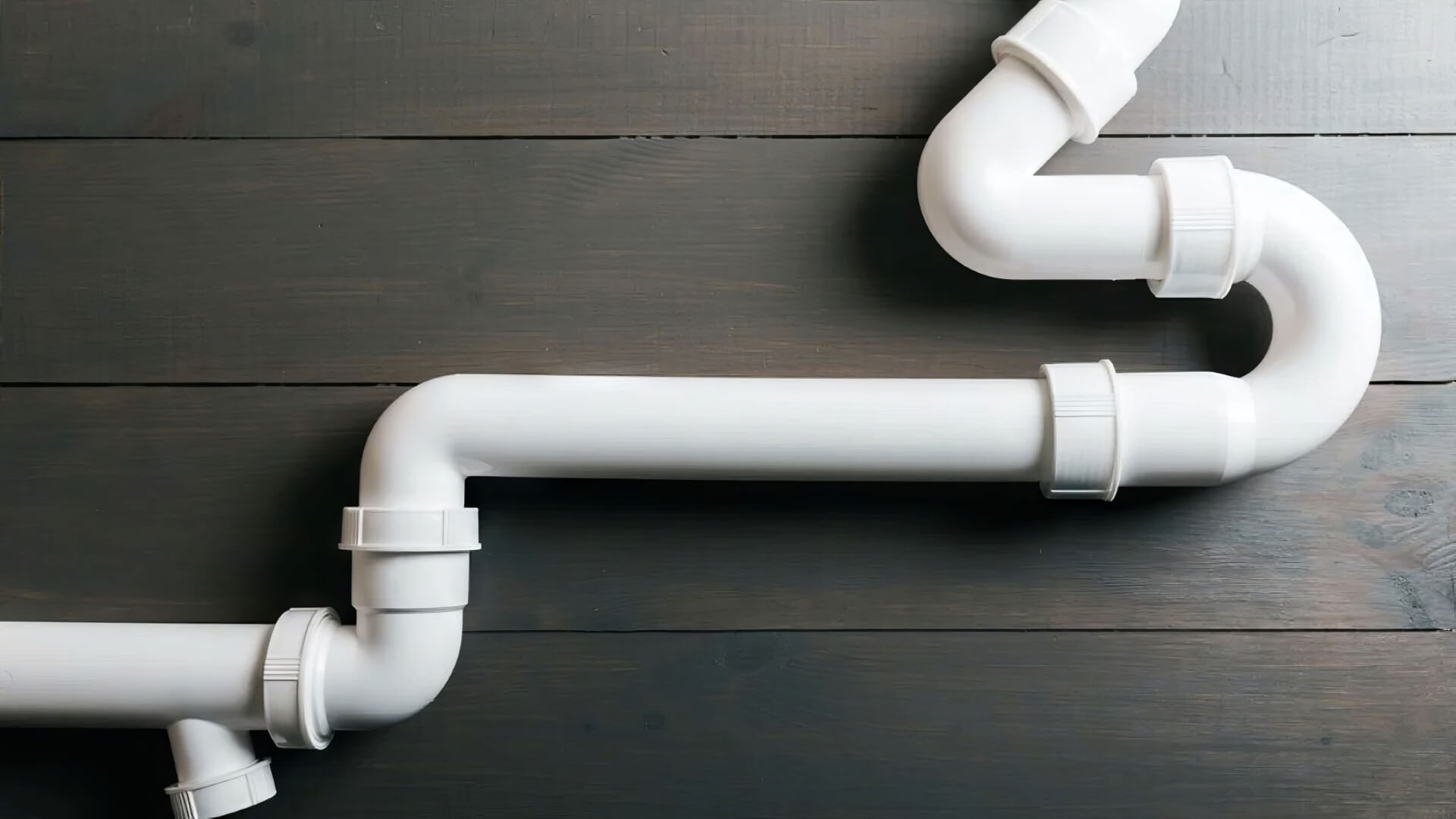Identifying common household plumbing emergencies
Immediate action is key in plumbing emergencies to prevent property damage and other issues. The most common situations that call for urgent attention include burst pipes, severe leaks, complete drain blockages, and loss of hot water supply. Ignoring seemingly minor issues such as slow drips or partial clogs can escalate them rapidly.
Frozen water lines and excessive water pressure buildup frequently lead to burst pipes. Meanwhile, fully blocked drains hinder wastewater flow, frequently resulting in sewer backups and flooding.
Over time, prolonged leaks can weaken structural integrity and may influence insurance claims. Malfunctions in the hot water system can significantly disrupt daily routines.
While some plumbing troubles seem manageable for DIY, certain emergencies pose impractical risks without proper equipment and expertise. Attempting makeshift solutions could also void warranties or affect the validity of your claim. Understanding the nuances of household plumbing helps in determining whether to call professionals or implement a stopgap measure.
Blocked drains
In your local area, untreated clogged drains are plumbing emergencies due to the flooding risk. Backed-up wastewater can quickly overflow indoors, leading to structural damage as well as visible mess. Partial obstructions also allow sewer gases into living spaces.
Homeowners can try to clear drains with a plunger or drain snake before resorting to calling professionals. However, if multiple fixtures are affected or mechanical means prove ineffective, you may need help as the clog likely requires expertise, which can take various forms. Tree roots, grease buildup, and collapsed pipes often complicate amateur repair efforts.
Professional help for severe drain blockages offers more than a stopgap solution; it mitigates health risks and prevents costly future repairs. Technicians’ specialised equipment locates and removes clogs without harming residential pipework. They can also assess if chronic issues like intruding roots, deterioration, or design flaws are responsible.
Gas leaks
An immediate response to gas leaks is essential due to the risks of explosion, poisoning, and suffocation. Even minor leaks, which may be overlooked like those requiring glass repair, can continuously emit dangerous fumes that are highly hazardous when ignited. Thus, occupants should immediately exit the building and call for emergency service upon detecting rotten egg odours or symptoms like dizziness, fatigue, or nausea.
Although pinpointing the source of a gas leak can assist technicians, their equipment is designed for this purpose. Meanwhile, occupants must avoid operating any electronics or flipping light switches to prevent triggering explosions until the fire department secures the site. Attempting DIY repairs also tampers with evidence should insurance cover damages.
Certified technicians not only employ gas detection devices; they accurately find and repair leakages. They follow rigorous safety protocols focused on permanent solutions. As gas issues escalate rapidly, delays heighten dangers, so experts arrange prompt assessments upon contact to resolve emergencies.
Evaluating if a repair requires a professional
Determining whether a plumbing issue warrants professional service hinges on several key factors. Evaluating your technical skills and equipment inventory can show if DIY efforts are advisable without worsening the damage.
However, situations like gas leaks, sewer line complications, and complex electrical faults require immediate expert intervention, irrespective of DIY skill levels. Such emergencies pose safety risks, health hazards, or extensive structural damages if handled amateurishly.
Quick fixes may initially appear convenient and cost-effective but can lead to recurring and costly complications. Considering the long-term functionality and lifespan of plumbing systems versus temporary fixes is crucial for informed decision-making. Recognising when DIY efforts are realistically out of one’s depth is a smart approach to save money and prevent headaches.
Consulting professionals also helps gather comprehensive information about the precise issues affecting your plumbing equipment. Their technical proficiency facilitates accurate troubleshooting, avoiding misguided decisions that could impact your property.
Professionals precisely diagnose core issues, recommend the best repair methods, and provide lasting solutions. Ultimately, deferring to qualified assistance for complex or high-risk plumbing emergencies ensures household safety and integrity.
Safety considerations for DIY repairs
Although minor plumbing repairs may seem straightforward, undertaking work without proper precautions poses significant safety risks. Incorrect tool usage can lead to severe injuries, mishandled glass can cause cuts, and electrical dangers near water sources are potentially deadly.
Consequently, homeowners should be extremely careful when undertaking DIY repairs, particularly considering potential insurance implications. Essential safeguards involve wearing protective gear like gloves and eye shields, shutting off main water lines before repairs, and understanding household plumbing layouts to avoid unseen connections; if unsure, contact your local plumber for advice. Checking local regulations regarding DIY alterations also proves prudent since unapproved changes may violate codes.
Chemical drain cleaners, much like handling a specific type of glass, require careful handling as they contain corrosive substances. Proper ventilation, skin coverage, and avoiding mixes with other products minimises threats to your health. Still, these ingredients can damage pipes and prove ineffective for resolving serious clogs when you use your typical household cleaners.
The intricacies and risks of some plumbing tasks justify seeking professional help without delay. Understanding how can one’s technical limitations contribute helps prevent safety incidents, property damage, or subpar outcomes requiring extensive rework. Erring on the side of caution not only keeps homeowners safe but also works to protect your dwelling from further damage.
Tools and materials for basic DIY jobs
Equipped with the right tools, homeowners can safely tackle basic plumbing repairs while awaiting professional help. Essential items for maintaining your home, much like you maintain your car, include protective gear like gloves and eye shields, a plunger, drain snake, adjustable wrenches, torch, sealant, emery paper, buckets to catch water, and towels for spill containment.
Opt for quality, durable equipment specifically designed for plumbing tasks, as opposed to general household multi-tools. Stainless steel offers resilience while torque-limiting mechanisms on wrenches prevent overtightening. Locate kits in easily accessible areas to enable swift response times during emergencies.
For drain cleaning, use non-corrosive chemical removers or enzyme-based solubilisers, avoiding caustic drain openers. Choose biodegradable solutions that are gentler on pipes and the environment. Ensure adequate ventilation when applying any liquid agents and never mix products unless directions explicitly allow combinations.
Having the necessary implements prepared before issues arise ensures basic slow-flows or leaks are taken care of confidently by homeowners. Tools such as power augers or drain cameras, however, should be left for professionals to avoid causing harm. Know your limits and recognise when it’s crucial to enlist expert help rather than attempting intricate repairs on your own.
When to call a professional immediately
Certain plumbing emergencies require contacting qualified technicians immediately rather than attempting DIY fixes. These include gas leaks, sewage backups, widespread flooding, mould growth, or structural damage signs.
Gas leaks pose explosion and toxicity dangers, thus warrant evacuating buildings and calling emergency services right away. Likewise, sewage backups spread contaminants and health hazards through properties, necessitating expert remediation.
Without rapid professional intervention, extensive water damage from burst pipes or severe weather can weaken foundations and foster mould growth. Thus, upon discovering pervasive moisture or leaks near load-bearing walls, turn off water sources then call technicians.
For urgent situations akin to needing emergency glass services, consult our online guidance or contact our around-the-clock support line at 1300 349 338 for immediate assistance. Our licenced crew offers prompt assessments and urgent repairs at short notice day or night before extensive servicing. Acting quickly, even the next day, mitigates long-term expenses and home safety risks.
Step-by-step DIY instructions
When plumbing issues seem minor, homeowners may attempt basic repairs if they feel capable and equipped. However, certain precautions apply.
- Assess the problem’s extent first. Targeted spot fixes differ from systemic issues, as they need more in-depth professional equipment.
- Gather suitable tools and protective gear - gloves, goggles, wrenches, buckets, rags, etc. Prepare a clear workspace.
- Turn off main water lines and electricity to the affected area.
- Follow tool specifications and instructions carefully to avoid injuries or damages.
- Work slowly and methodically. Set buckets under leakage points to catch water.
- If the issue worsens or exceeds DIY capabilities, stop immediately and call professionals.
- Upon completing repairs, turn water and power back on slowly, checking for leaks. Run taps to flush residue.
- Clean up debris and tools afterwards. Document any ongoing issues.
- Call specialists for follow-ups if makeshift fixes seem insufficient to resolve root causes.
Repeated failures despite DIY efforts indicate chronic underlying problems needing expert servicing. Know your limits and when to engage professionals, and find out which issues warrant their expertise.
Unclogging a drain
Attempting to unclog drains before calling professionals can prevent expensive visits for minor issues. Ensure a tight seal around the drain opening before plunging firmly several times. Use a plunger first to dislodge obstructions and get water flowing again.
Repeat across multiple fixtures if necessary.
For deeper clogs, insert an auger or plumber’s snake into the drainpipe. Retract carefully to pull obstructions free. Take care not to scratch pipes with the snake end.
Crank the handle to extend the cable down towards the clog, then twist clockwise and counterclockwise to ensnare debris.
Avoid overusing chemical drain cleaners as they corrode pipes over repeated use. Allow products time to work rather than using back-to-back applications.
Seek eco-friendly formulations first. Always wear gloves and avoid mixing cleaners.
If DIY attempts fail to clear extensive clogging, refrain from further amateur efforts. Call professional plumbers instead. They have industrial-grade equipment to address tricky obstructions without damages.
Unclogging a toilet
Clogged toilets require prompt attention to restore functionality and sanitation. Begin attempts to clear blockages using a toilet plunger first. Ensure the bell creates an airtight seal over the drain then plunge forcefully several times to dislodge obstructions.
Pour hot water during attempts to loosen buildups. Pour hot water during attempts to loosen buildups. Alternatively, try a closet auger to snake deeper clogs.
Insert the flexible rod down the toilet carefully and crank handle to spin cable end.
Avoid chemical drain openers as residues can damage pipes and prove ineffective for substantial clogs. Seek mechanical removal means first before considering more caustic solutions. If DIY methods fail despite multiple attempts, arrange professional assistance.
Cost comparison: DIY vs. hiring a pro
Determining the most cost-effective option between DIY and professional plumbing repairs requires weighing multiple factors. At first glance, undertaking the work yourself seems cheaper. However, that route risks expenses from potential injuries, damages, or subpar outcomes necessitating future corrections.
Even a seemingly simple toilet unclogging using standard equipment from a hardware store may run $30 to $50 for quality tools. However, multiple DIY failures leading to an inevitable professional service can increase costs. Technicians charge approx. $180 per hour for drain cleanings, with additional fees if snake rentals or special augers prove necessary.
Alternatively, acting promptly to engage qualified experts provides quality assurance. Licenced professionals possess industrial-grade equipment, in-depth technical knowledge and extensive experience needed to remedy issues properly the first time. Though hourly rates exceed DIY tool purchases, comprehensive solutions prevent recidivism and ensure long-term functionality.
Ultimately, plumbers specialise at accurately diagnosing and strategically addressing root causes rather than applying mere temporary fixes. Their expertise provides answers to pressing questions like 'What do I do next?' and allows straightforward repairs for household budgets and plumbing systems alike when issues emerge. Knowing one’s limits helps mitigate unnecessary costs and complications over time.
Preventative plumbing maintenance tips
Monitoring water pressure ensures it stays between 50 to 80 PSI - install a pressure regulator if needed. Monitoring water pressure ensures it stays between 50 to 80 PSI - install a pressure regulator if needed.
Regular monthly checks can detect small problems before they worsen. Prioritise enzyme-based cleaners or mechanical methods initially. Implementing preventative maintenance helps avoid plumbing emergencies and sustain systems long-term.
Also check water heater tanks and pipes periodically for corrosion or leaks. DIY enthusiasts should assemble a toolkit for fundamental tasks like fixing blocked sinks or lavatories. Seek professional assistance at least yearly to assess functionality. Seek professional assistance at least yearly to assess functionality.
Flushing systems annually removes sediment buildup. They also confirm systems meet evolving regulations. They also confirm systems meet evolving regulations.






